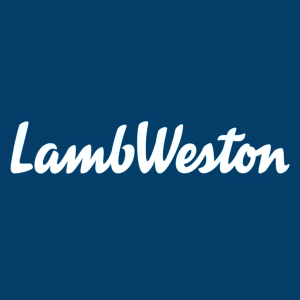JANA Partners Sends Letter to Board of Directors of Lamb Weston Holdings
Believes Significant Board and Leadership Change Is Necessary to Improve Performance
Absent Meaningful Board and Leadership Change, Lamb Weston Should Launch a Formal Review of Strategic Alternatives to Maximize Value for Shareholders
The full text of the letter is as follows:
December 16, 2024
Board of Directors
Lamb Weston Holdings, Inc.
599 S. Rivershore Lane
Board of Directors,
JANA Partners (“JANA,” “we” or “us”) together with our strategic and operating partners beneficially own more than
We believe Lamb Weston’s Board and management have wasted the chance to sustain and grow shareholder value in a high-quality business. It is indisputable that Lamb Weston’s track record for shareholders prior to the disclosure of our investment has been poor, not only in a disastrous 2024 (which includes an earnings report so ignominious that it prompted one long-tenured analyst to declare it “one of the worst days for a larger-cap food producer in modern history”),1 but also over the long-term with total returns in the last five years2 dramatically trailing the S&P 500 and performing in the bottom quartile when compared to proxy peers.
Regrettably, we believe this dismal performance record significantly understates the magnitude of lost opportunity at the Company. Relative to its publicly traded packaged food peers, we believe Lamb Weston enjoys the benefits of an attractive end market, a strong industry position and key competitive advantages (including geographic ones). When coupled with Lamb Weston’s long-time reputation as a premier foodservice supplier – which took prior management many years to build – we think these attributes should have positioned the Company as an attractive ‘compounder’ stock and best-in-class performer for investors.
Instead, the current Board and management have overseen a multi-year period of uncorrelated failures across many major elements of operating the business, in the process damaging the Company’s reputation and leading market position. This has impaired performance, dissolved confidence among customers, investors and other stakeholders and caused Lamb Weston to veer off its path as a world-class business.3
The disclosure of our involvement on October 18th led to an approximately
A failure of Board oversight has permitted chronic mis-execution, a bloated expense structure, poor capital allocation and questionable use and disclosure practices involving the Company’s aviation assets. Making matters worse, the Board has supported management as Company leadership has attempted to place primary blame for the Company’s challenges on end market softness – rather than offering a long overdue mea culpa and acknowledging the magnitude of damage inflicted on the business and investors from its litany of self-inflicted missteps.6 This contradicts what we believe to be an environment where the Company’s primary competitors (all private companies) have enjoyed stronger performance at Lamb Weston’s expense. This disconnect has not been lost on the investors and other stakeholders we have spoken with or who took part in a proprietary survey.7
Lamb Weston’s failures include:
-
Significant Financial and Operating Deficiencies: These have cost the Company (at a minimum) nearly
$400m - A fumbled attempt to enhance its customer base by voluntarily ceasing business with some customers (i.e. ‘firing’ them) before the Company had secured the superior replacement volume, resulting in lost market share and a volume shortfall that has weighed on revenue.
- Mis-forecasting customer demand so dramatically that the Company has been forced to write off an inordinate amount of raw potatoes in both F2024 and F2025.9
- Executing a multi-hundred million dollar ERP project riddled with delays (underway for almost a decade and now paused) where implementation failed so spectacularly that it left important Lamb Weston customers without products for a period in F3Q24, costing the Company both customers and reputational damage.
-
Failing to identify and address product quality problems for a key customer until so late in the process that the Company incurred
~ in losses from product withdrawal.$80m -
Generating little to no overhead cost leverage in the business despite doubling revenue over the last eight years,10 with the Company increasing its SG&A targets from 8
-8.5% sales to 10.5-11% in 2023.11
-
Failed Oversight of Capital Allocation: The multi-year escalation of capital deployment – rubber-stamped by the Board and paired with misaligned incentives – led to elevated capex without acceptable returns, left the Company with no margin of safety when operational missteps surfaced, dramatically reduced free cash flow generation and eroded investor confidence in the Company. This includes:
-
An escalation in capital expenditures for new capacity so ill-conceived and poorly risk-managed that the new capacity subsequently necessitated the costly shuttering of existing capacity, including closing a manufacturing plant in
Connell, WA and terminating nearly 400 employees. -
Announcing a long-term capex target of
9% 12 of revenue, substantially higher than stated maintenance capex levels of ~3% revenue, creating confusion around these elevated levels13 and with no clear roadmap for how the spend would generate sustainable and acceptable returns on capital. - Inexplicably permitting management to execute stock repurchases shortly before large earnings misses and dramatic declines in the Company’s share price.14
-
Misaligned executive compensation targets that heavily incent growth, have no return on capital guardrails and have allowed management to earn the maximum amount (
200% ) of the target in FY24 on the operational performance component of the Long-Term Incentive Program’s Performance Share Awards15 despite disastrous performance for investors.
-
An escalation in capital expenditures for new capacity so ill-conceived and poorly risk-managed that the new capacity subsequently necessitated the costly shuttering of existing capacity, including closing a manufacturing plant in
-
Questionable Use and Disclosure Practices around Aviation Assets:
-
Having a corporate plane to facilitate transport of employees between
Boise, ID and key manufacturing locations is an understandable investment of corporate resources. However, our analysis of flight records shows that since 2019, Lamb Weston’s plane has registered ~300 flights into or out ofOmaha, NE – the former headquarters of Conagra and what appears to be the CEO’s primary residence – and additional flights to numerous other destinations that raise questions regarding the legitimate business purpose of these flights. The Company’s proxy disclosures – which show compensation of only$14,463 $13,737 $21,349 -
In September 2023, shortly before the Company’s 2023 Investor Day, when it created consternation and confusion among analysts and shareholders by announcing a new long-term capex target of
9% of revenue, Lamb Weston reserved two new tail numbers with the US Federal Aviation Administration. FAA Registry data shows these reservations were subsequently purged on October 18, 2024 – the day of JANA’s 13D filing in Lamb Weston.
-
Having a corporate plane to facilitate transport of employees between
This track record makes clear that the status quo is no longer tenable – and is completely unacceptable – for shareholders. JANA has a multi-decade reputation of working constructively with Boards to drive change and improve performance – in this spirit, our offer stands to work with Lamb Weston, as we and our team of highly regarded industry executives16 are prepared to join the Board immediately and help rehabilitate the Company and drive long-term value. However, if the Board is unwilling to make the significant changes needed to repair Lamb Weston, then the Company should work with its financial advisors to explore a sale and take advantage of strategic interest in the Company to achieve the highest possible risk-adjusted return for shareholders.
We look forward to the Board’s prompt response.
Sincerely,
Scott Ostfeld
Managing Partner & Portfolio Manager
About JANA Partners
JANA Partners was founded in 2001 by Barry Rosenstein. JANA invests in undervalued public companies and engages with management teams and boards to unlock value for shareholders.
1 JP Morgan, 7/25/24. |
2 Five-year period from 10/17/19 through 10/17/24, the day before JANA filed its 13D. |
3 Per the summary of a recent Deutsche Bank initiation, “Over the past year, Lamb has faced ‘repeated, self-inflicted setbacks’ to its operations, supply chain, and general execution on top of weakening end-market demand, resulting in substantial charges and guidance cuts, the analyst tells investors in a research note.” (The Fly, 12/12/24). |
4 For example, “JANA’s move should be seen as a positive in accelerating a turnaround.” (Wells Fargo, 10/21/24); “Activist investor involvement will benefit the shares.” (TD Cowen, 10/18/24); “[W]e think JANA's presence and expertise in the space should, over time, help LW drive change and improve some of the company's current operating practices that resulted in a series of recent executional flaws.” (Barclays, 10/18/24). |
5 For example, one investor respondent noted, “The board is an F,” and another said, “I mean I think to some degree the board too has been asleep at the switch, like really asleep at the switch. And little things are happening now, like the restructuring plan that I think are just reactive versus proactive… But the CEO and the team is just not a quality group of people. You can’t have this many unforced errors and still have the same team in place, I mean come on. Is there any evidence they can run this company. Not that I am seeing.” (Proprietary Survey). |
6 “LW’s volume weakness and capacity utilization declines are substantially more a function of company-specific strategic actions (including the ERP-related setbacks in FY3Q24) than broader industry traffic softness.” (Goldman Sachs, 6/20/24). |
7 For example, one investor respondent said, “I am so sick and tired of them blaming everything else but looking in the mirror.” (Proprietary Survey). |
8 Includes Company disclosed amounts of |
9 “Up to 10 million cwt of potatoes could be turned back to growers as part of Lamb Weston’s restructuring plan.” (North American Potato Market News, 10/10/24). |
10 When comparing SG&A % Revenue for F2024 per F2024 Lamb Weston 10-K to F2016 per F2018 Lamb Weston 10-K. |
11 10.5 |
12 “Beginning in fiscal 2026, we expect capital expenditures will begin to normalize towards |
13 “[W]e believe that level of spending [as presented at the October 2023 Investor Day] is inconsistent with LW’s own history on both an absolute dollar and % of sales basis (even adjusted for the EMEA acquisition).” (Goldman Sachs, 6/20/24). |
14 An analyst from Jefferies asked on the F4Q24 earnings call, “On the share repo, clearly bought some stock back, which is great. But I'm just kind of curious kind of as you were headed into today's print, you probably thought maybe the stock could be down a little bit. Like why not just buy stock back like tomorrow versus in the fourth quarter?” Another analyst published on the topic, “Why did LW buy back so much stock during 4Q when it knew the quarter and FY25 guidance would be soft? (This was asked on the earnings call by one of our peers – we like the question but unfortunately no answer was provided).” (JP Morgan, 7/25/24); “We are confused by why LW is leaning much harder into repo intraquarter, when the company can see that fundamentals are weakening (i.e. management knows there’s a good chance the stock will drop when earnings are reported).” (JP Morgan, 10/1/24). |
15 Per Lamb Weston 2024 Definitive Proxy Statement. |
16 “The individuals named… as possible board nominees — Tim McLevish, Joe Scalzo, Diane Dietz, etc. — are well-respected by many investors, in our view; their inclusion arguably adds gravitas to Jana’s efforts.” (JP Morgan, 10/18/24). |
View source version on businesswire.com: https://www.businesswire.com/news/home/20241216832356/en/
Media
Jonathan Gasthalter/Nathaniel Garnick
JANA@gasthalter.com
Investors
IR@janapartners.com
Source: JANA Partners






